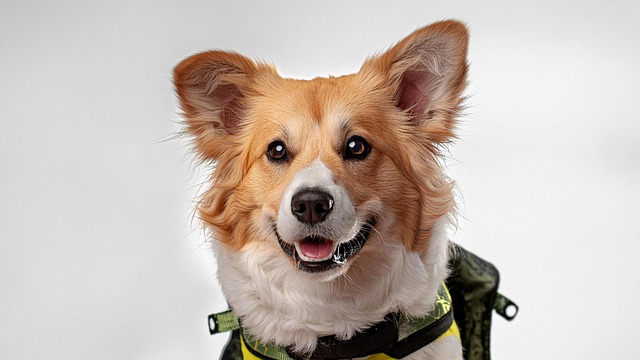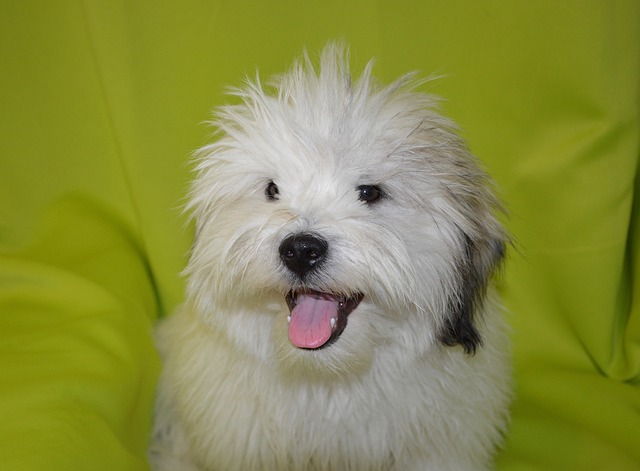
At what age do dogs get food allergies?
When we stroke our fluffy beloved dogs and watch them wagging their tails while enjoying their food, we rarely think that seemingly ordinary food can be an "invisible killer" that harms them.
When we see our usually lively furry friend suddenly lose its appetite, vomit, have diarrhea, and curl up in the corner listlessly, our hearts ache. A dog's gastrointestinal discomfort is like a silent battle. They can't speak, but they send us distress signals with their vulnerable bodies. Understanding how to deal with a dog's gastrointestinal problems scientifically is not only the key to safeguarding their health but also a heartfelt expression of the owner's silent companionship.
A dog's gastrointestinal tract is fragile and easily affected by external factors, leading to gastrointestinal discomfort. Sudden changes in diet are one of the common causes. Just as our stomachs protest when we suddenly change our long-term diet, a dog's gastrointestinal flora balance is disrupted when the owner, out of good intentions, changes the brand of dog food or feeds them greasy human food, chocolate, and other foods that are taboo for dogs. The beneficial bacteria in the intestine have difficulty quickly adapting to the new food, and harmful bacteria take the opportunity to multiply in large numbers, causing symptoms such as vomiting and diarrhea. Imagine that in a dog's small body, its gastrointestinal tract is going through a fierce "battle," and the surging discomfort makes it restless. All it can do is look at the owner with a pitiful gaze.
Infection with bacteria, viruses, or parasites is also an important cause of a dog's gastrointestinal diseases. Dogs are naturally curious and like to explore the world with their noses and mouths. When they roll on the grass or sniff in strange corners, they are likely to come into contact with pathogenic sources hidden in the environment. Viruses such as parvovirus and coronavirus are highly destructive. Once they invade, they quickly attack the dog's intestinal cells, causing damage to the intestinal mucosa and symptoms such as severe diarrhea and bloody stools. Parasites like roundworms and tapeworms live in the intestine, not only depriving the dog of nutrients but also irritating the intestine and causing inflammation, leading to frequent vomiting and loss of appetite. Watching the once energetic little guy being tortured by the illness and losing weight day by day, every stroke from the owner is filled with heartache and anxiety.
 Drastic changes in the environment can also make a dog's gastrointestinal tract "act up." During long trips, moving to a new place, or being fostered in a strange environment, dogs may experience endocrine disorders due to stress, affecting the normal peristalsis and digestive function of their gastrointestinal tract. Their world suddenly becomes unfamiliar, and their inner unease is manifested through gastrointestinal discomfort, as if they are saying, "Master, I'm so scared, and my body doesn't feel well." At such times, dogs need the warmth of the owner's embrace and attentive care even more.
Drastic changes in the environment can also make a dog's gastrointestinal tract "act up." During long trips, moving to a new place, or being fostered in a strange environment, dogs may experience endocrine disorders due to stress, affecting the normal peristalsis and digestive function of their gastrointestinal tract. Their world suddenly becomes unfamiliar, and their inner unease is manifested through gastrointestinal discomfort, as if they are saying, "Master, I'm so scared, and my body doesn't feel well." At such times, dogs need the warmth of the owner's embrace and attentive care even more.
When we find that a dog has symptoms of gastrointestinal discomfort, the first thing the owner should do is stay calm. Closely observing the dog's mental state, the condition of its vomit and excrement is crucial, as these details are important bases for judging the illness. If the dog only vomits occasionally, its mental state is still okay, and there is no persistent diarrhea, we can try fasting while ensuring access to water. Fasting for 12 to 24 hours allows the dog's gastrointestinal tract to rest sufficiently and relieves the digestive burden. However, during the fasting period, we must ensure that the dog can drink clean warm water at any time to prevent dehydration. Just as we feel better when we don't eat for a while when our stomachs are uncomfortable, a dog's gastrointestinal tract also needs such an opportunity to "breathe."
After the fasting period ends, we can feed the dog a small amount of easily digestible food, such as warm millet porridge and mashed pumpkin. These foods are mild and non-irritating and are rich in dietary fiber, which helps the gastrointestinal tract recover. When feeding, we should follow the principle of feeding small amounts frequently and gradually increase the food intake while observing the dog's reaction. If the dog doesn't vomit or have diarrhea again after eating, it means that its gastrointestinal tract is slowly getting better. However, if the dog has severe symptoms such as frequent vomiting, continuous diarrhea, listlessness, a rise in body temperature, and bloody stools, we must immediately take it to a pet hospital. At the hospital, the veterinarian will accurately determine the cause of the illness through professional examinations such as a blood routine and fecal examination and carry out targeted treatment. It may be necessary to infuse fluids to replenish water and electrolytes to prevent the dog from dehydration and electrolyte disorders. Antibiotics or anthelmintic drugs may also be used according to the infection situation.
During the recovery of a dog's gastrointestinal tract, in addition to careful care in terms of diet, daily nursing cannot be ignored. We should provide the dog with a warm and comfortable resting environment to prevent its abdomen from getting cold and aggravating the gastrointestinal discomfort. We can lay a soft mat in the dog's kennel to make it feel the warmth of home. At the same time, we should give the dog more companionship and comfort. Gentle strokes and soft words of comfort can make them feel the owner's love and relieve the anxiety and unease caused by the illness.
Treating a dog's gastrointestinal diseases is a long and patient battle. Every decision and every act of care by the owner is related to the recovery of the furry friend. When we see the dog wag its tail happily again, eat with gusto, and frolic in the sun, all the worries and hard work day and night will turn into tears of happiness. Dogs accompany us throughout their lives, and we should use all our love and scientific care to safeguard every healthy and happy moment of theirs.

When we stroke our fluffy beloved dogs and watch them wagging their tails while enjoying their food, we rarely think that seemingly ordinary food can be an "invisible killer" that harms them.

When the fluffy little dog leaves the warm embrace of its mother dog and starts to face the world independently, its ignorant and dependent eyes make every owner feel affectionate.

In the late night pet hospital, under the incandescent light, you watch your dog struggling to move its body, every step accompanied by a slight tremble,

When our furry friends at home scratch frequently, sneeze incessantly, or show symptoms such as diarrhea and ear inflammation, the hearts of every pet owner are gripped with worry.

When you squat down and want to stroke that once fluffy Corgi, your palm gets covered with large amounts of dog hair.

When the furry little golden fur happily falls into your arms, with a faint odor or soil left behind from playing, bathing it becomes a necessary and challenging task.